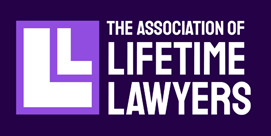Wills And Estate Planning

Head of Private Client
Kirsty Strong leads the private client team. To contact Kirsty please call 01744 626 600 or email info@frodshams.co.uk
Nobody likes to think about their death and many people think that Wills and Estate Planning are not necessary or relevant to them.
But if you die without having made a will the effects on your Estate and loved ones may be far from what you envisaged would happen.
At Frodsham’s Solicitors we help guide you through the relevant considerations that you need to think about, bringing sensitivity and respect to the process.
Whether you need a single will for a modest estate or if your needs are more complex, we can provide advice and assistance to ensure that you pass on your assets exactly as you wish, sparing your loved one’s additional stress at an already difficult time.
To contact a member of the team click on the email link below, contact us via info@frodshams.co.uk or telephone 01744 626 600
Expert Team Of Will Solicitors
Our team have many years of experience in helping clients and their families navigate the legal process during some of life’s most challenging and difficult times. Our Private Client Director, Kirsty Strong, heads the team of 5 solicitors and 2 trainee solicitors and has been working in this area since 2009, handling some difficult and complex matters in that time. Our Managing Director, Amanda Woods works alongside the team and has more than 20 years of experience working with the elderly and vulnerable client.
Our solicitors have experience in all aspects of private client law, and we dedicate ourselves to ensuring our knowledge stays up to date, in order to give you the best service possible. They have between 1 and 10 years of experience in the area. We make sure that junior solicitors and members of staff are supported and supervised appropriately so that the quality of advice is not affected, regardless of who is working on your case.
We also employ a team of around 5 legal assistants into the dept. who do much of the day to day work on cases. Although they are not legally qualified, they have between 2 and 30 years’ experience, have received extensive training within our firm and work under the direct supervision of a solicitor with at least 5 years post qualification experience.
We have a proven track record in achieving an effective and caring service throughout our departments. You can find out more about our price information on our website.

Contact us today

Wills and Estate Planning Guide
Simply click on a heading below to find out more.
What is a Will?
A will is a document which takes effect on death and in which you decide who can benefit from your Estate.
Your Estate being everything that you own on death.
Why should I make a Will?
If you die without having made a will the effects on your Estate and loved ones may be far from what you envisaged would happen.
The Intestacy Rules will decide who can benefit from your Estate if you die without having made a valid Will.
The strict application of these rules can leave many loved ones disappointed. Stepchildren, close friends, and partners who are not married or in a civil partnership will not benefit under these rules.
Who can make a Will?
Anyone who is over 18 years of age and has full mental capacity can make a will. In some circumstances it may be possible to draft a Will for someone who does not possess the requisite mental capacity, this is known as a statutory Will and is made via the Court of Protection.
When making a Will you must ensure it is drafted correctly and conforms to the legal requirements otherwise it will fail, and your beneficiaries will lose out.
Considerations when making a Will?
Some important aspects to consider when making a Will include:
- Marriage and the effects on your existing Will and Estate
- Divorce and the effects it can have on your existing Will and Estate
- Disinheriting someone and the affects it can have on your Will and estate
- Complex family circumstances and providing for them within your Will
- Children under 18
- Providing for a vulnerable and/or disabled Beneficiary
- Considerations of long-term care arrangements
- The blended family – second marriages, children from previous marriages and step-children
- Family disputes
- Tax
- Expected windfalls in the future
- Any gifts made within your lifetime
Types of Wills
Simply click on a heading below to find out more.
Basic Wills
Wills That Provide for The Vulnerable or Disabled
Statutory Wills
Advance Directions or Living Wills
Wills and Care Home Issues
Varying a Will and Redirecting Your Inheritance
Inheritance Tax
Making Gifts
Reducing Inheritance Tax by Giving to Charity
From 6 April 2012 if you leave 10 per cent or more of your net Estate to a qualifying charity your Estate may qualify to pay Inheritance Tax at a reduced rate of 36 per cent.
Inheritance Tax reliefs
I want to make a Will
Legal Areas














Client Feedback